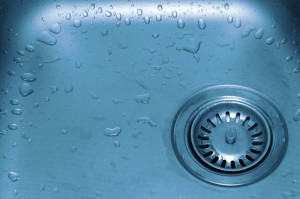
Fortunately, garbage disposals are a great option for those looking to cut back on the amount of refuse that gets sent to a landfill. If you can’t accommodate a compost bucket, a sink disposal is the next-best thing to reduce food waste in your garbage – plus it may have some unexpected benefits for the environment as well. Here’s how it works:
Beating the Trash
A lot of us would rather be out of sight, out of mind when it comes to the amount of waste our homes put out. But it’s difficult to dismiss landfills – they’re one of the major environmental disaster zones of our time. When the garbage in a landfill decomposes, it releases methane into the atmosphere. Methane is one of the top greenhouse gases, and as it builds up, it leads to the erosion of the planet’s ozone layer – which in turn is presumed to cause climate change. If the garbage in a landfill is burned instead, it will still release dangerous chemical smoke into the air, further leading to problems in the atmosphere. Add on the carbon emissions caused by garbage trucks as they chug around a city, and you have one polluted system – literally.
In this 2013 article from Hemispheres Magazine, garbage disposal units were heralded as an excellent eco-friendly option to simply throwing extra waste in the trash. When you put your food into a garbage disposal unit, it heads down the sink and into the sewer system, where it eventually ends up in a wastewater treatment plant. It still decomposes the same way, and it still releases carbon dioxide and methane – but the difference here is that plants are better equipped than a landfill to handle the influx of gas, mostly due to the fact that the food waste supply is much smaller and more concentrated.
Beneficial Biogas
Aside from not stuffing up landfills, there are even more ecological benefits to using a garbage disposal in your home. When your food waste lands in a wastewater treatment plant, some locations – such as ones in Illinois – are able to capture the greenhouse gases that the decomposing food releases and convert them into biogas. The Hemispheres Magazine article reports that many municipal governments are now looking into using the biogas to power electricity grids, or convert into natural fuel. So, when you put your food waste in a garbage disposal, somewhere down the line, you could be contributing to a house’s power source or clean fuel for a car.
It turns out that even the sewage treatment plants are benefiting from using garbage disposal waste – it’s helping them gain business, grow their industry, and even alter their public perception. “Some municipalities are even tapping local businesses’ byproducts, using everything from brewery hops to over-the-hill supermarket produce in order to ramp up biogas production,” says Hemispheres. “In fact, the race to make biogas is altering the image of the sewage treatment industry, which is rebranding itself from ‘wastewater management’ to ‘water resource recovery.’” Not only are garbage disposal units cleaning up the atmosphere – they could be cleaning up the sewage treatment industry’s image as well.
Conclusion
Whether you’re super eco-conscious or you just want to cut down on your amount of household waste, a garbage disposal is the perfect solution to give your refuse a second life as green energy, rather than dangerous emissions. So start putting your food remnants down the sink and let your San Diego plumbing deal with the rest – then feel confident that you’re doing something good for the environment.
Do you use a garbage disposal? Tell us what you like about it in the comments.

 FREE Live Music and Family Fun at Allied Gardens First Fridays The next Allied Gardens First Fridays Summer Concert in the Park is just around the corner. Grab your lawn chairs, bring a picnic, and get ready to meet your
FREE Live Music and Family Fun at Allied Gardens First Fridays The next Allied Gardens First Fridays Summer Concert in the Park is just around the corner. Grab your lawn chairs, bring a picnic, and get ready to meet your  Ideal Plumbing Heating Air Electrical Named Winner of 2023 Better Business Bureau Torch Awards for Ethics in San Diego (San Diego, CA – September 15, 2023) Better Business Bureau Serving the Pacific Southwest (BBB) has named Ideal Plumbing Heating
Ideal Plumbing Heating Air Electrical Named Winner of 2023 Better Business Bureau Torch Awards for Ethics in San Diego (San Diego, CA – September 15, 2023) Better Business Bureau Serving the Pacific Southwest (BBB) has named Ideal Plumbing Heating